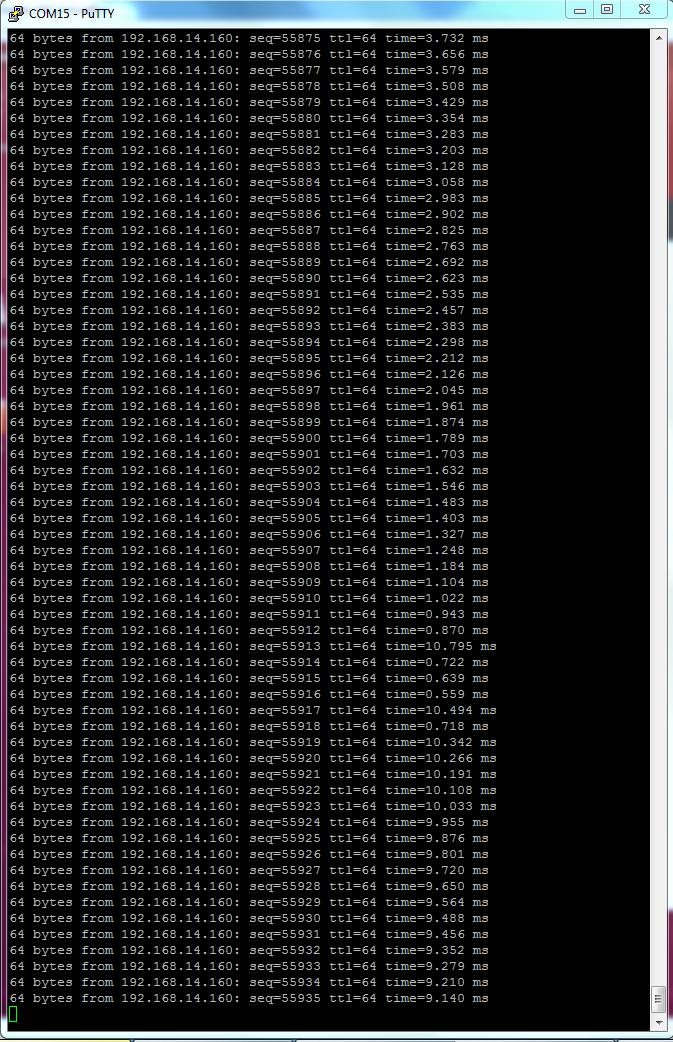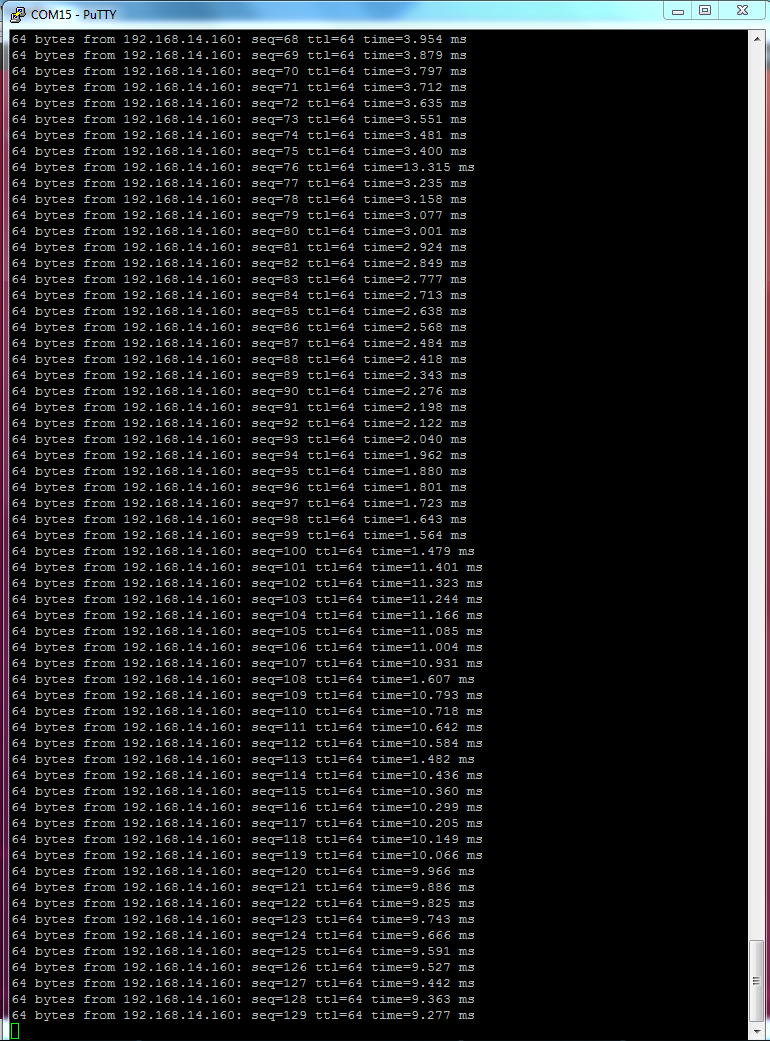Part Number: TMDSIDK574
This is the extension of this thread:
e2e.ti.com/.../3105350
Hardware:
57xx IDK, pru-ethernet via prp (eth2 and eth3).
the san-device (IBM PC).
The IDK pings the san.
I have install the packages for initialize the pru:
1. Copy that libs into the rootfs/usr/lib:
libarchive.so
libarchive.so.13
libarchive.so.13.3.2
libbz2.so
libbz2.so.1
libbz2.so.1.0.6
liblzo2.so
liblzo2.so.2
liblzo2.so.2.0.0
libsolv.so
libsolv.so.0
2. Copy the opkg into the rootfs.
3. Copy that ipk into the rootfs/home/root:
kernel-module-pru-rproc-4.14.67-gd315a9bb00_4.14.67+git0+d315a9bb00-r7a.arago5.tisdk1.3_am57xx_evm.ipk
kernel-module-pruss-4.14.67-gd315a9bb00_4.14.67+git0+d315a9bb00-r7a.arago5.tisdk1.3_am57xx_evm.ipk
kernel-module-pruss-intc-4.14.67-gd315a9bb00_4.14.67+git0+d315a9bb00-r7a.arago5.tisdk1.3_am57xx_evm.ipk
kernel-module-pruss-soc-bus-4.14.67-gd315a9bb00_4.14.67+git0+d315a9bb00-r7a.arago5.tisdk1.3_am57xx_evm.ipk
kernel-module-remoteproc-4.14.67-gd315a9bb00_4.14.67+git0+d315a9bb00-r7a.arago5.tisdk1.3_am57xx_evm.ipk
kernel-module-ti-prueth-4.14.67-gd315a9bb00_4.14.67+git0+d315a9bb00-r7a.arago5.tisdk1.3_am57xx_evm.ipk
prueth-fw_5.1.4-r0_am57xx_evm.ipk
iproute2_4.11.0-r0.arago3_armv7ahf-neon.ipk
libelf1_0.170-r0_armv7ahf-neon.ipk
and install them at linux arago:
opkg --add-arch am57xx_evm:66 install --force-depends kernel-module-pru-rproc-4.14.67-gd315a9bb00_4.14.67+git0+d315a9bb00-r7a.arago5.tisdk1.3_am57xx_evm.ipk
opkg --add-arch am57xx_evm:66 install --force-depends kernel-module-pruss-4.14.67-gd315a9bb00_4.14.67+git0+d315a9bb00-r7a.arago5.tisdk1.3_am57xx_evm.ipk
opkg --add-arch am57xx_evm:66 install --force-depends kernel-module-pruss-intc-4.14.67-gd315a9bb00_4.14.67+git0+d315a9bb00-r7a.arago5.tisdk1.3_am57xx_evm.ipk
opkg --add-arch am57xx_evm:66 install --force-depends kernel-module-pruss-soc-bus-4.14.67-gd315a9bb00_4.14.67+git0+d315a9bb00-r7a.arago5.tisdk1.3_am57xx_evm.ipk
opkg --add-arch am57xx_evm:66 install --force-depends kernel-module-remoteproc-4.14.67-gd315a9bb00_4.14.67+git0+d315a9bb00-r7a.arago5.tisdk1.3_am57xx_evm.ipk
opkg --add-arch am57xx_evm:66 install --force-depends kernel-module-ti-prueth-4.14.67-gd315a9bb00_4.14.67+git0+d315a9bb00-r7a.arago5.tisdk1.3_am57xx_evm.ipk
opkg --add-arch am57xx_evm:66 install --force-depends prueth-fw_5.1.4-r0_am57xx_evm.ipk
opkg --add-arch armv7ahf-neon:56 install --force-depends libelf1_0.170-r0_armv7ahf-neon.ipk
opkg --add-arch armv7ahf-neon:56 install --force-depends iproute2_4.11.0-r0.arago3_armv7ahf-neon.ipk
I have no make more any change in sdk.
So, after the 2nd compilation of sdk, there are are the same bug in the ping: the ping is unstable.
Firstly, the ping is great, up to 10ms.
Then ping gradually decreases downto 0.7ms, and then is again 10ms.
And again.
When IDK pings the 127.0.0.1, the ping is 0.06ms stable.
Please help.




